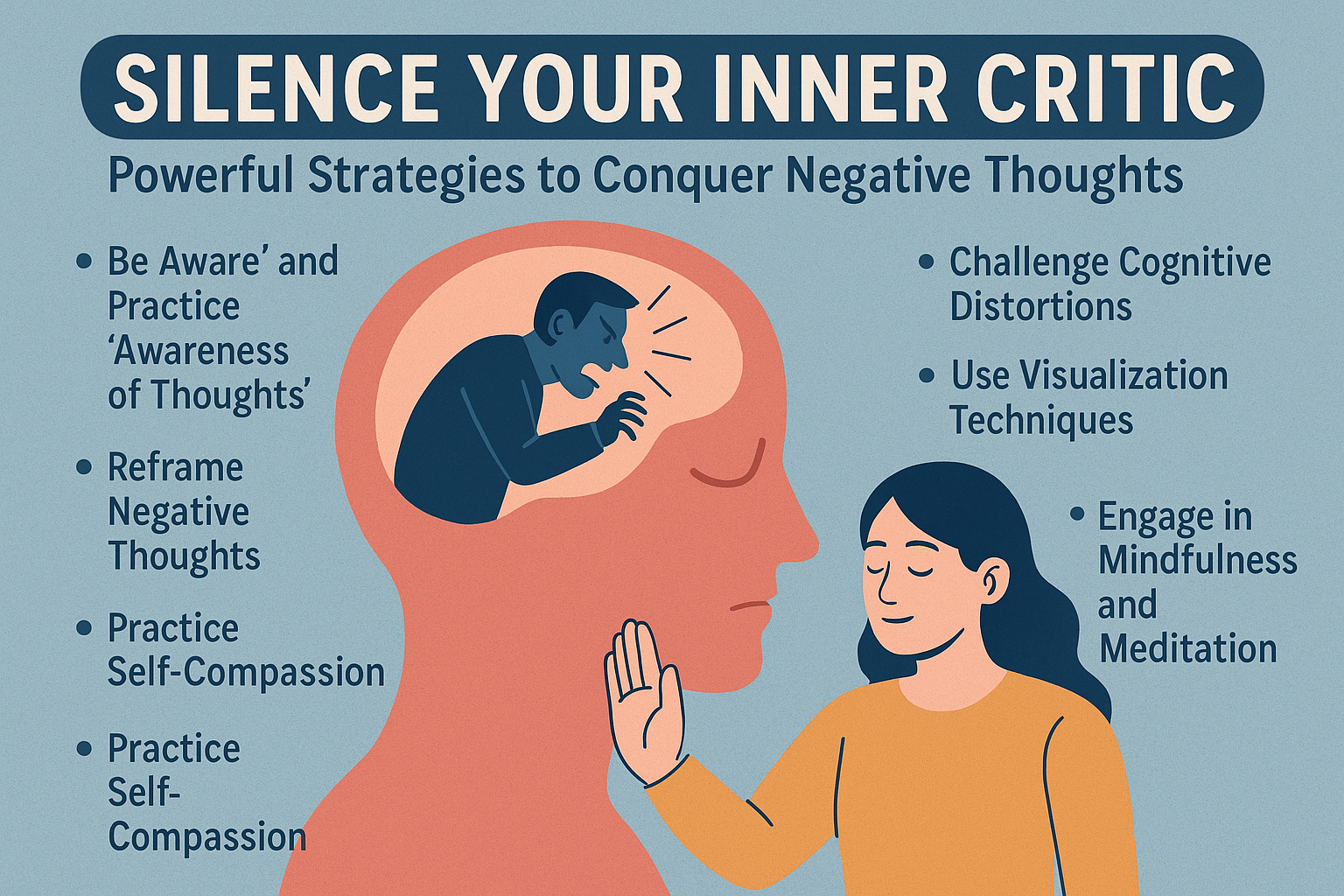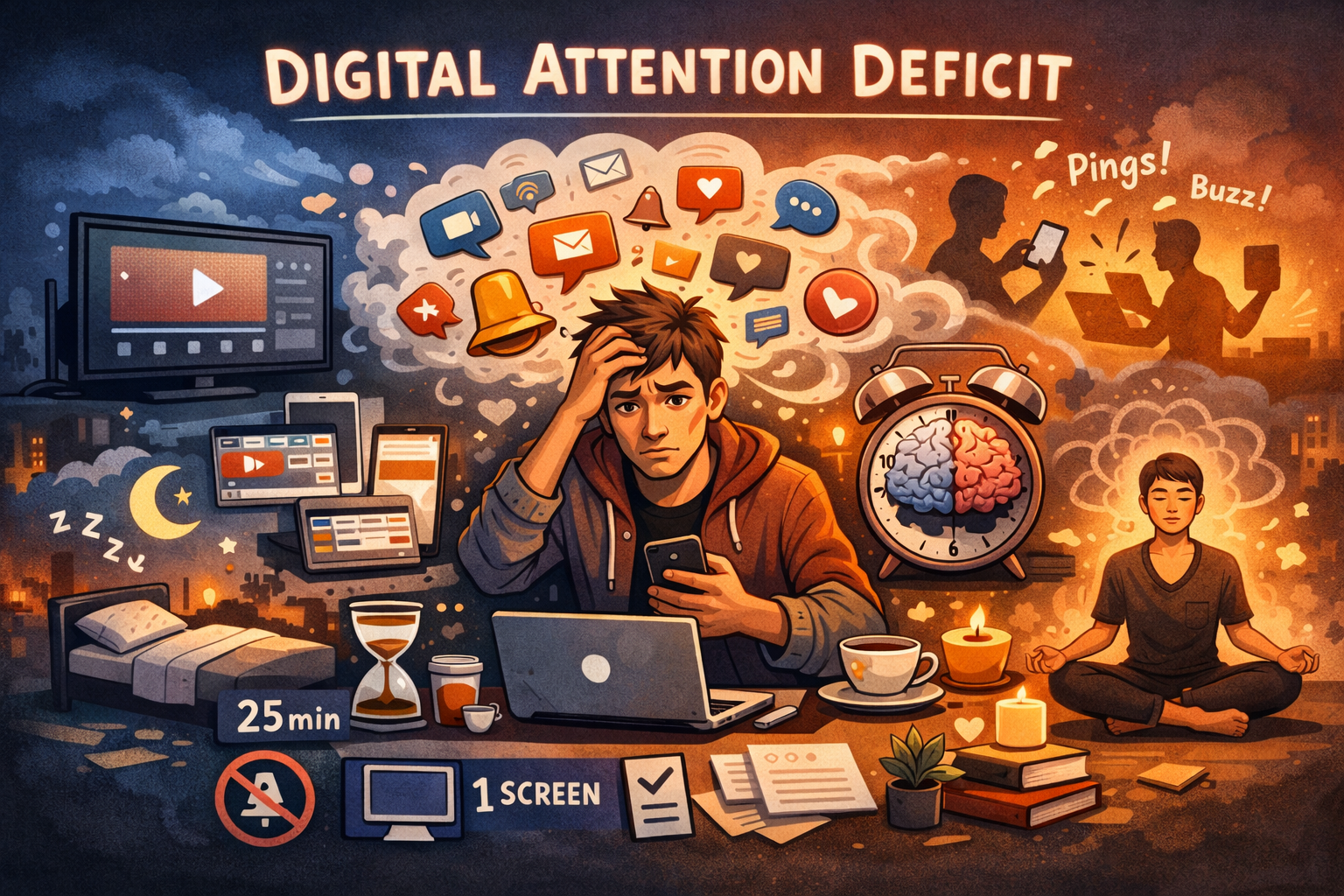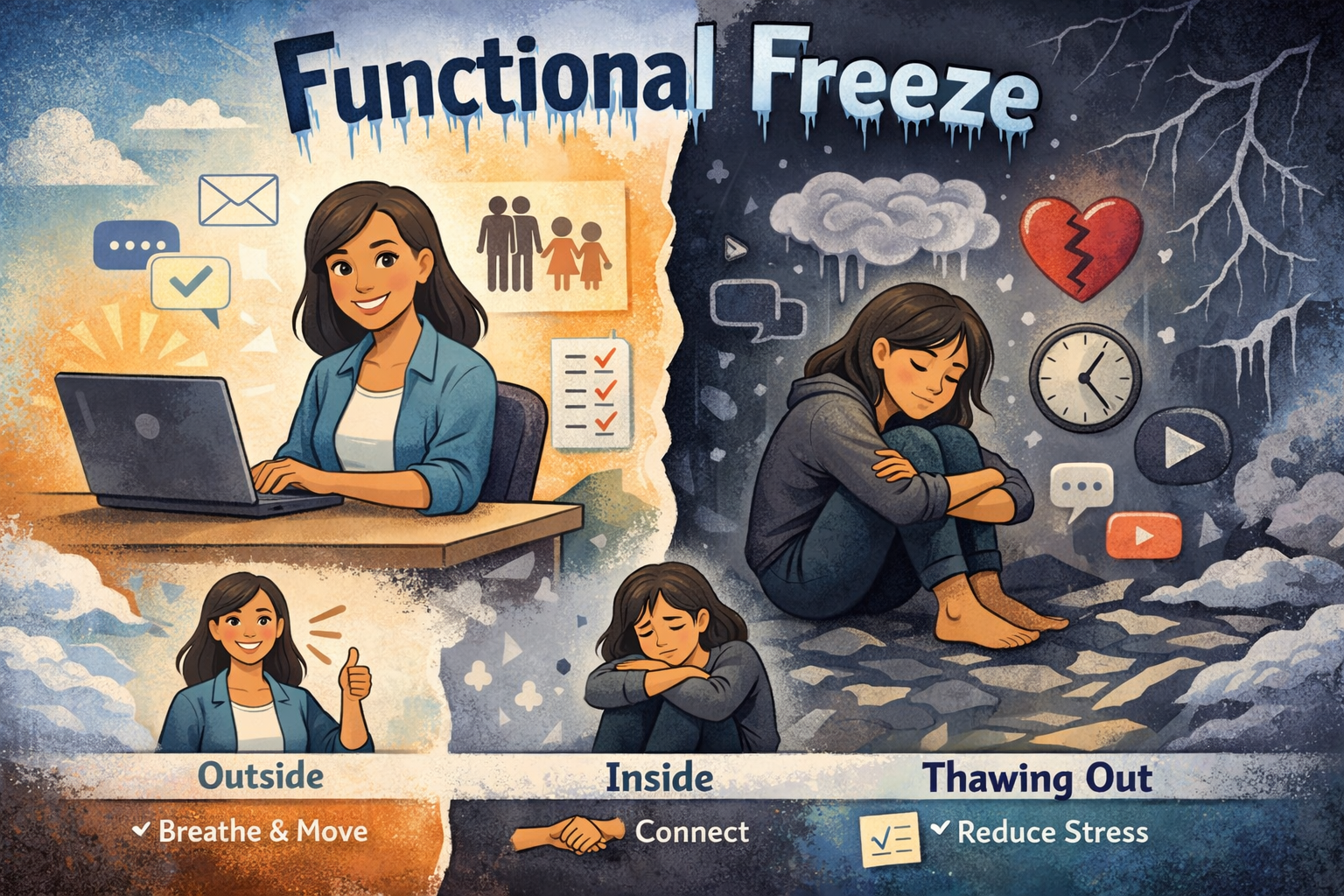We all have an internal voice that guides us—our thoughts, behavior, and actions. This very inner voice occasionally elevates our spirit and hope while sometimes bringing us down, demoralizing us, and even criticizing us. Our inner critic voices destructive thoughts that discourage us in many ways, such as lack of ability and competence, poor intelligence level, and lack of worthiness. These kinds of thoughts directly or secretly damage our mental health.
In this way, our inner critic can potentially do a lot of harm if we do not manage it properly. However, there is good news. We can silence it. In fact, we can make it positive and encouraging. We can create a calm environment to facilitate rational thinking. This article provides straight and simple methods backed by scientific evidence that show us how to transform destructive self-talk into positive self-thoughts.
What Is the Inner Critic?
The inner critic functions as the internal dialogue that performs judgment and criticism before lowering our self-esteem. The origin of these thoughts usually comes from our past experiences, inner fears, and a sense of perfectionism; however, ongoing negative thinking leads to emotional distress, anxiety, and possibly depression.
Dr. Kristin Neff explains that self-criticism produces higher stress levels and decreased motivation. He further says that self-compassion builds up both emotional strength and resilience.
Why It is Important to Tame the Inner Critic
Harsh self-talk develops into a persistent habit that shapes both our personal identity and social behavior over time. Research indicates that repetitive negative thinking patterns transform brain structures. According to a 2014 study published in Nature Neuroscience, chronic stress and negativity reduce our brain's grey matter in the prefrontal cortex, the area responsible for decision-making and emotional control.
Silencing our inner critic means developing new ways of interacting with ourself through both compassion and rational/objective thinking rather than ignoring our problems.
1. 'Be Aware' and Practice 'Awareness of Thoughts'
The initial step involves identifying and recognizing the inner critical voice within us. Note down the content of self-talk through journaling during stressful times to increase our self-awareness. We need to ask ourselves, "Is this thought helpful or harmful?
Would I express this statement to someone I consider a friend? The act of becoming aware of our critic weakens its control so we can develop alternative ways of thinking.
2. Reframe Negative Thoughts
The process of reframing enables people to view the same situation in a balanced perspective. For example:
Instead of saying, "I failed this test; I'm so stupid," We should say, "I did not do well this time. How should I improve next time?"
Cognitive Behavioral Therapy (CBT) emphasizes how our interpretation of events matters more than the events themselves.
3. Practice Self-Compassion
Dr. Kristin Neff's research demonstrates that self-compassion produces improved emotional health and reduced anxiety while increasing our motivational level. We should treat ourselves with the same kindness that we would offer to a close friend after committing a mistake.
We all have imperfections in our different attributes and a natural tendency to struggle, yet we deserve love and a place to belong. — Brené Brown
The healing power of simple statements such as "It's okay to make mistakes" and "I'm learning and growing" can bring deep comfort.
4. Challenge Cognitive Distortions
Negative thinking is often distorted. Some of the common distorted patterns include:
- Black and White (All-or-nothing) thinking: "If I don't succeed, I'm a total failure."
- Catastrophizing: "If I mess this up, everything will go wrong."
- Mind reading: "They must be thinking I'm incompetent."
Recognize these patterns in our minds and actively fight against them. What is the evidence? What is a more realistic view?
5. Use Visualization Techniques
The human mind can achieve remarkable results through visualization practices. Often, we visualize things in advance. Athletes and sportspeople use this technique to sharpen their skills. We practice speech before doing it to address the audience.
Likewise, we use this technique in our daily lives. We should remember to use visualization for developing both our inner strength and emotional calmness while growing more compassionate. The symbolic approach creates distance, which enables us to take back control of the situation.
6. Engage in Mindfulness and Meditation
Mindfulness helps people observe their thoughts without making any form of judgment or assessment. A research study published in JAMA Internal Medicine (2014) demonstrated that practicing mindfulness meditation effectively decreases both anxiety symptoms and depression symptoms as well as stress levels.
Guided meditations available through apps like Headspace and Insight Timer assist users in finding mental clarity by quieting their thoughts.
7. Surround Ourselves with Enjoyable People and Develop Positivism
People who surround us shape how we perceive ourselves. Devote your time to people who provide support and positive reinforcement. We should minimize the time we spend with those who drain our energy or create doubts in us.
Time spent consuming positive content, including books, music, and podcasts, gradually replaces our negative thought processes.
Final Thoughts: We Are Not Our Inner Critic
The voice of our inner critic represents only one perspective rather than the absolute truth. Thoughts are not real; keep reminding ourselves. We possess the ability to challenge, modify, and reframe our thoughts and create better versions of that inner voice. Through practices of awareness combined with kindness, compassion, and rational thinking, we can gain the ability to silence our critic and discover inner confidence and peace.
Our mind should not automatically accept every thought that passes through it. Thoughts are simply thoughts that exist in our minds. — Allan Lokos
Try This Today:
Take a deep breath. Every time our inner critic shows up, repeat these words: "I see you. But I choose compassion." When we make this single decision, it will completely transform the way we feel inside.
Are you looking for inner peace, deep relaxation or holistic solutions for mental health? Visit http://themindtherapy.in - your space for online counselling/therapy, free mental health tests, meditation, sound therapy etc.
Mind Therapy is India's trusted platform for mental health, mindfulness, and holistic healing. Explore expert-led programs, guided meditation, sound therapy and counselling at http://themindtherapy.in














